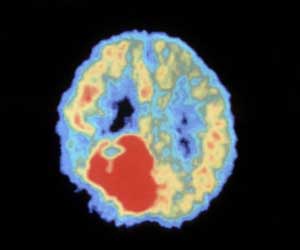
"Studies such as ours that help define molecular alterations associated with short-term survival likely will help define the reasons why our current treatments don't succeed in these patients," says Dr. Steven Kalkanis, M.D., a neurosurgeon and surgical oncologist at Henry Ford's Hermelin Brain Tumor Center, and lead author of the study.
"As new mechanisms of resistance are revealed and targeted agents are developed to address these mechanisms, the number of long-term survivors should increase."
The Henry Ford study was published this month in the journal Clinical Neurology and Neurosurgery.
The study focused on 476 patients at Henry Ford Hospital who were diagnosed with glioblastoma from 1995 to 2008. Each was randomly chosen from the Hermelin Center's brain tumor tissue bank, which holds more than 4,100 unique patient brain tumor specimens.
The patients were evaluated as part of the international Cancer Genome Atlas, to which the Hermelin Brain Tumor Center at Henry Ford Hospital was a major contributor.
Advertisement
After categorizing each patient as a short (less than nine months), medium (nine to 24 months) or long-term (at least 24 months) survivor, the researchers looked for relationships between survival time and patient age, gender, functional impairment, increases in tumor size, surgery and chemotherapy.
Advertisement
Besides confirming earlier studies that showed improved survival of glioblastoma as new techniques and medications were introduced, the new study found:
- Survival times among Henry Ford patients were ahead of national glioblastoma survival trends.
- Those age 70 and older included more short-term survivors that the younger age groups.
- Gender differences were only detected when comparing the short- and medium-term survivors, with females more likely to be short-term survivors.
- The tumor's location within the brain was not a significant factor in survival time.
- Specific genes identified by the researchers may independently improve patient survival. The Henry Ford team concluded that more and ongoing research in this area is vital to understanding how to fight the usually fatal cancer tumor.
"Among the factors which are associated with increased survival of glioblastoma patients during the time period we studied," says Tom Mikkelsen, M.D., a neuro-oncologist and co-director of the Henry Ford's Hermelin Brain Tumor Center, "is the multidisciplinary care coordinated by a dedicated tumor board as common practice for managing brain tumor patients. New expertise in neurosurgery, molecular pathology and experimental therapeutics are critical and must be personalized for each patient."
While the medical community is engaged in an ongoing debate about the usefulness of such boards, Dr. Kalkanis says his team's research found that not only are they "warranted," but "necessary" for the future treatment of glioblastoma and continuing to improve patient quality of life and survival rates.
Source-Eurekalert















